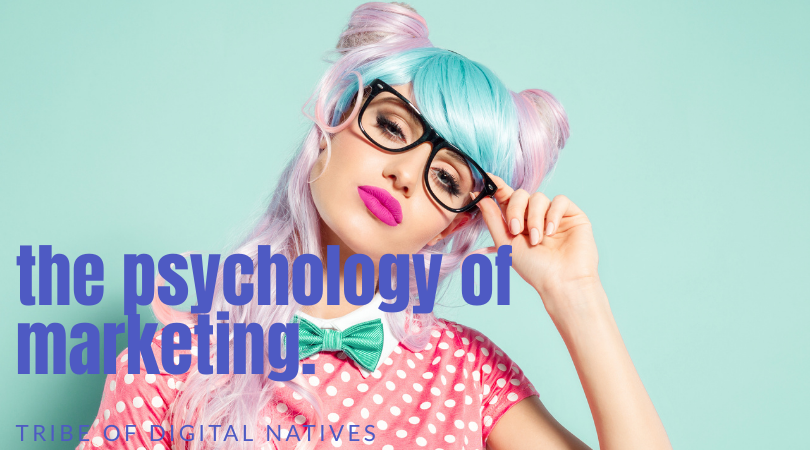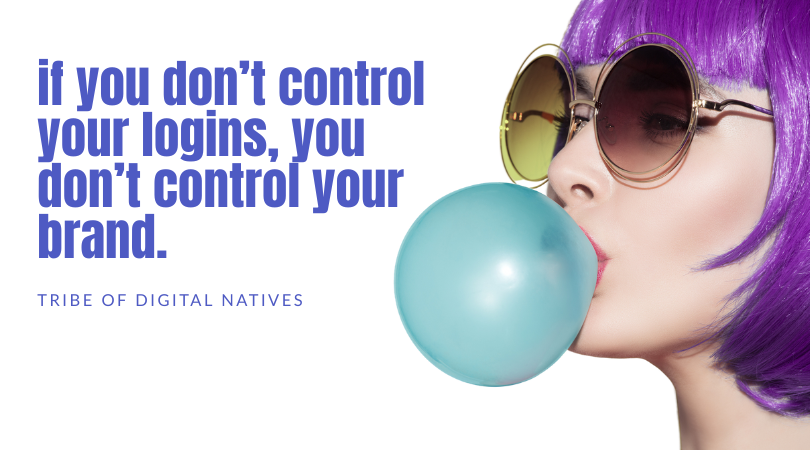From Scroll to Sale — The Psychology of Marketing and What Makes People Click
- Digital Natives

- Sep 5
- 4 min read
Updated: Sep 10

Everyone wants clicks. Few know why they actually happen.
Here’s the truth: people don’t click because of your logic. They click because of your leverage.
The Psychology of Marketing: Why Clicks Happen
A click isn’t random. It’s a micro-decision shaped by psychology, trust, and timing. Marketers call this the psychology of marketing - the study of why people actually take action online and what triggers move them from passive scrolling to active clicking. Whether someone’s scrolling Instagram at midnight, searching Google for “best pizza near me,” or skimming LinkedIn during their lunch break — the brain is asking three silent questions:
Am I curious enough to know more?
Do I feel something strong enough to act?
Do I trust this link and brand not to waste my time?
If the answer is “yes” to at least two, you earn the click. If not? They scroll right past you.
“Clicks aren’t accidents. They’re the result of psychology, trust, and timing working together.”
Engagement Triggers That Turn Scrolls Into Clicks
Curiosity: Tease, don’t tell. If they know everything from the headline, why click? A little mystery fuels momentum. Example: “7 Mistakes Small Businesses Make on Instagram (You’re Probably Guilty of #4).”
Emotion > Logic: Facts inform. Feelings convert. Nobody buys a candle for “lumens per watt.” They buy because it feels cozy, romantic, or calm.
Trust Signals: Reviews, testimonials, or just not looking scammy as hell. Credibility is clickbait done right.
Ease: If the link looks sketchy, the button’s buried, or the process feels clunky, they’re out.
When these triggers align, people don’t just click — they decide.
What Doesn’t Work in Small Business Marketing
Overexplaining in your post. If the whole answer is in the caption, why leave?
Bland CTAs like “Learn more.” People crave direction, not boredom.
Generic content that feels like wallpaper. Safe = invisible.
👉 Bottom line: Nobody clicks “meh.” If your content feels like a lukewarm handshake, you’ve already lost.
“Engagement is the currency of small business marketing — and clicks are the cash register ringing.”
Why Clicks and Engagement Matter for Small Business Marketing
Big brands can afford to spray money across every ad platform and hope something sticks. Small businesses don’t have that luxury.
For a local restaurant, boutique gym, or real estate agent in your city, clicks are lifelines. They’re what turn curious strangers into paying customers.
A click on your Google Business profile → means foot traffic through your door.
A click on your Instagram story → can be the sale of tonight’s special.
A click on your LinkedIn article → might land you the next client contract.
Clicks aren’t vanity. They’re survival.
How to Engineer More Clicks With Smart Engagement
Write for humans, not robots. Stop obsessing over keywords and start obsessing over what your customer actually cares about.
Use platform-specific CTAs. What works on Instagram (“Swipe up”) won’t work on LinkedIn (“Read the full post”). Match the medium.
Layer trust everywhere. Consistent branding, updated profiles, and reviews are the silent signals that tell people, “This business won’t waste my time.”
Measure what matters. Don’t just track “impressions.” Look at CTR (click-through rate), conversions, and how clicks tie back to revenue.
“The psychology of marketing proves one thing: people buy with emotion and justify with logic.”
FAQs: Clicks, Engagement, and Small Business Marketing
Why do people click on some posts and not others?
Because humans make decisions emotionally first and rationally second. Posts that spark curiosity, tap into feelings, or build trust win more clicks than posts that just throw out facts.
Do CTAs really make a difference in engagement and clicks?
Absolutely. A bland “Learn More” won’t drive clicks. Creative CTAs like “See the proof” or “Get your free guide today” boost engagement and push small business marketing further.
How important is design in getting people to click a link or ad?
Huge. If your website looks dated or your Facebook ad feels cluttered, trust vanishes. Clean design builds confidence — and that confidence converts into engagement and clicks.
Can small businesses really compete with big brands for clicks?
Yes. Small business marketing has an advantage: authenticity. A local café telling a real story with customer photos can earn more engagement and clicks than a polished, million-dollar corporate ad.
What’s the difference between impressions, engagement, and clicks?Impressions are views. Engagement is interaction — likes, shares, and comments. Clicks are action. For small businesses, clicks matter most because they move people from scrolling to buying.
📩 Ready to turn curiosity into conversions? Contact us
We don’t sell vibes. We don’t chase trends. We kill bad marketing advice for a living. Tribe of Digital Natives builds brands with backbone - strategy sharp enough to slice through the noise and bold enough to actually convert.
About Tribe of Digital Natives:
Based in South Florida and building bold nationwide since 2010, Tribe of Digital Natives is a digital marketing collective that refuses to weaponize marketing. We do SEO, social, branding, and content - but never cookie-cutter, never beige, never bullshit.











Comments